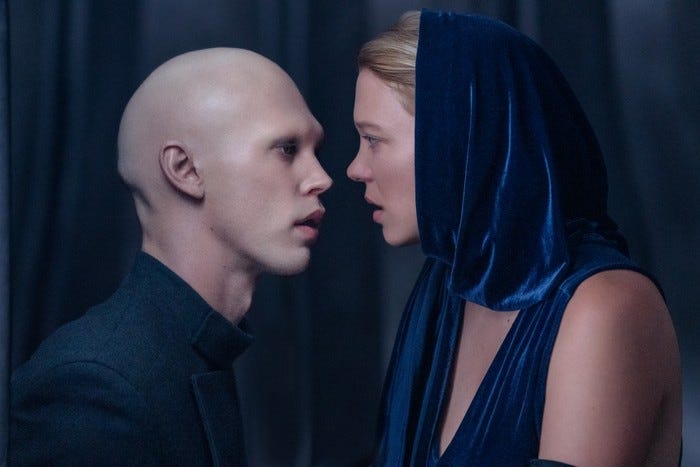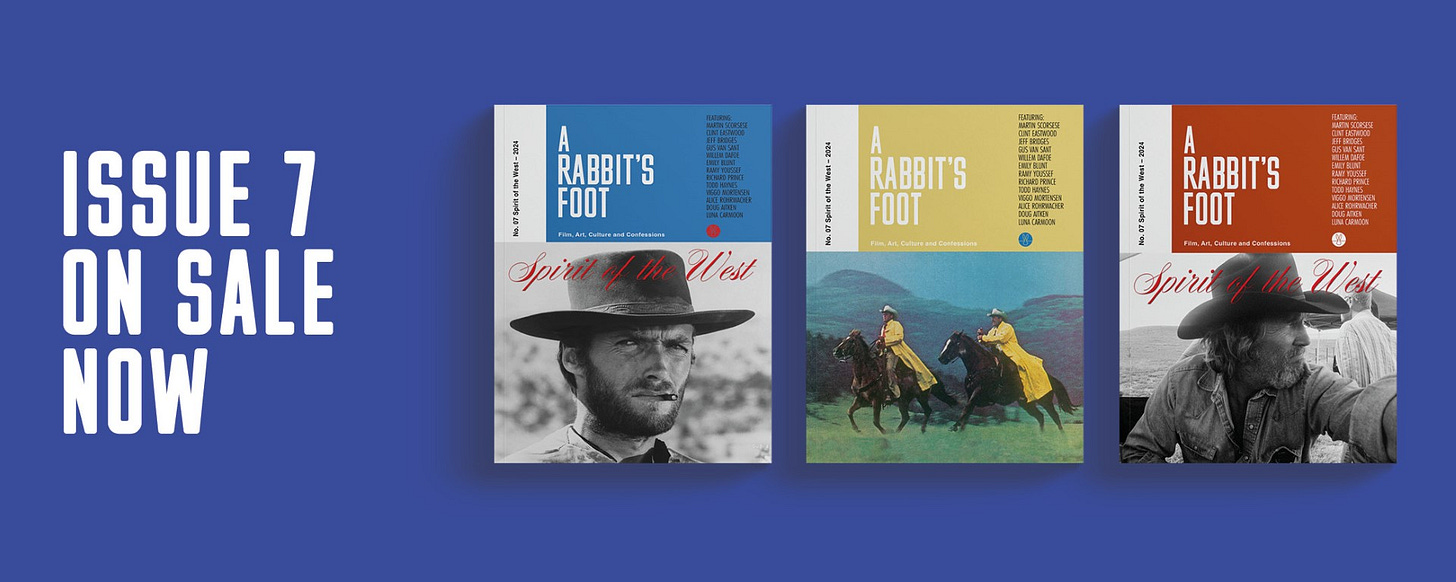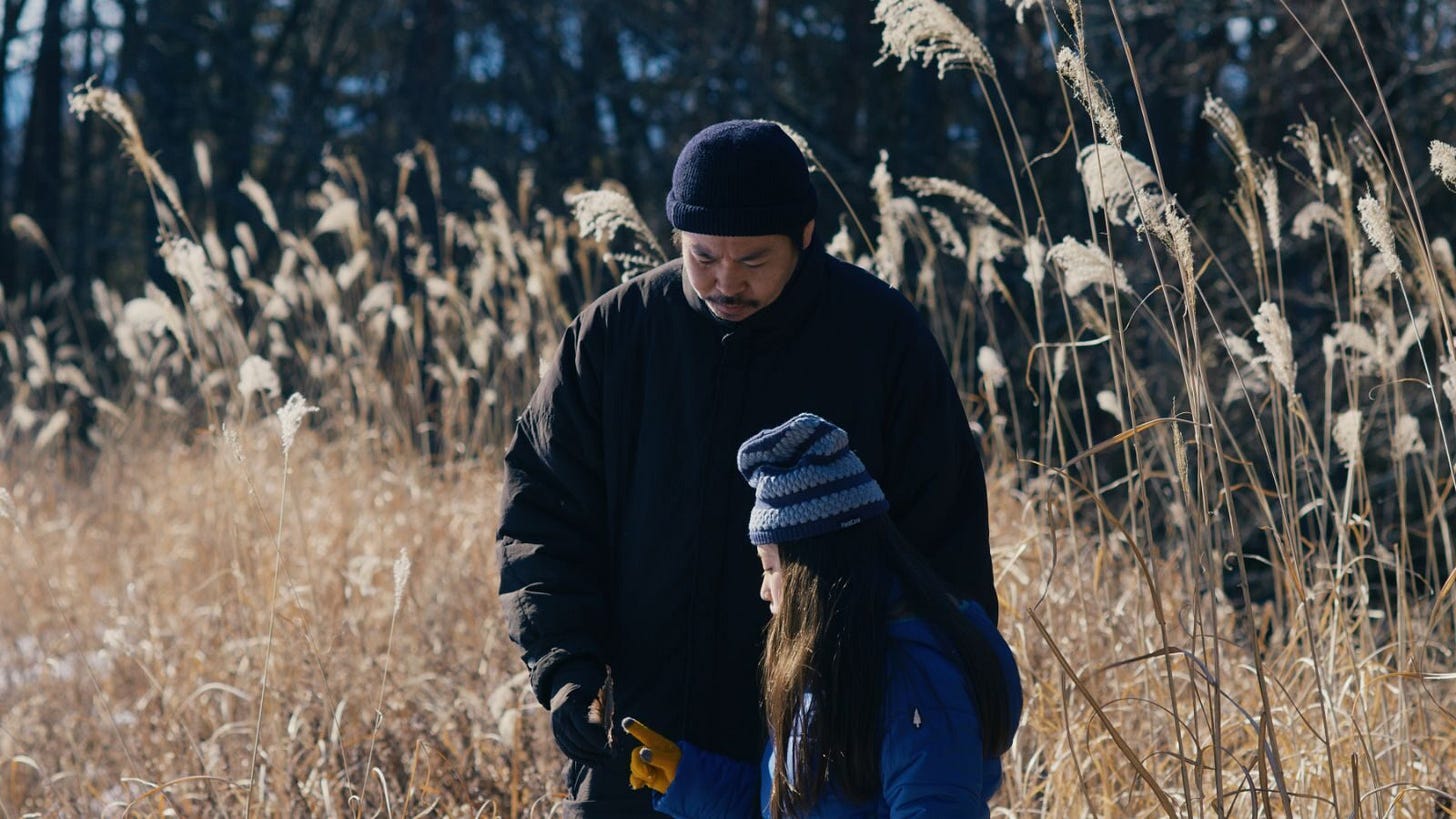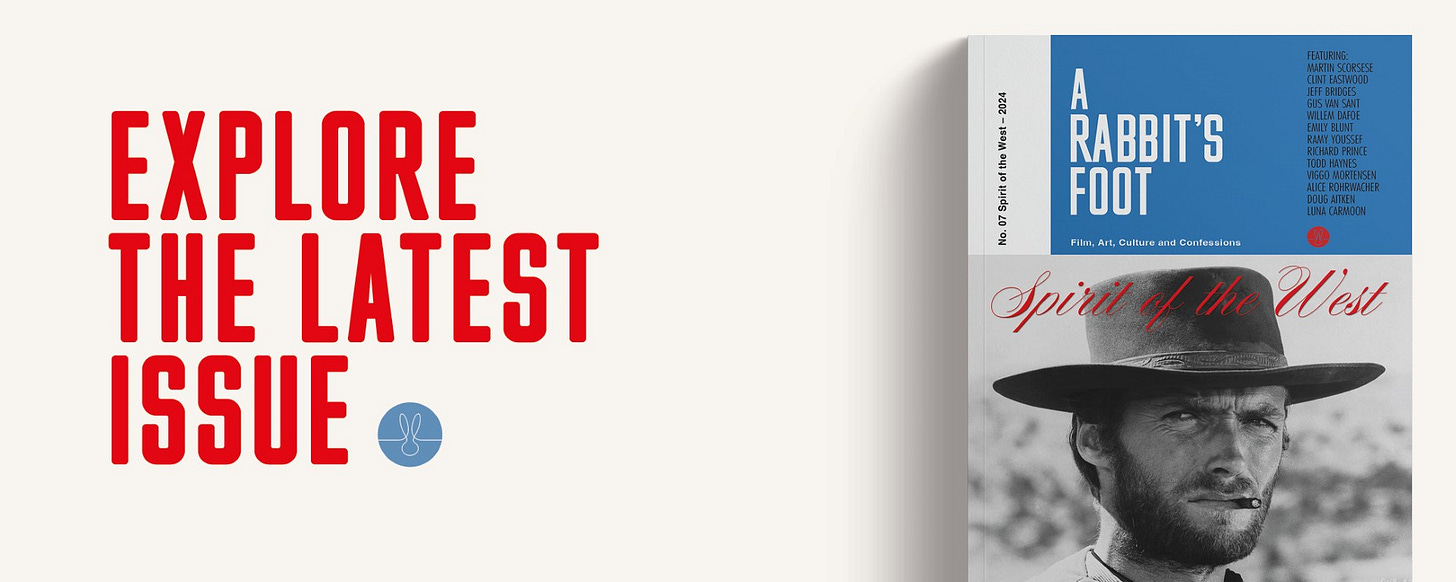Hollywood's veneer problem, Evil Does Not Exist and the interiors of Priscilla
Essential film reading from A RABBIT'S FOOT this week.
Humanity erased: are veneers ruining Hollywood?
Naturalistic teeth might not be the most obvious takeaway from Dune 2, Denis Villeneuve’s sci-fi epic, but for the writer Haaniyah Angus, they were. “It was a strange observation, perhaps, but when you realise just how much of Hollywood uses painfully obvious veneers, the inclusion of these two women’s gnashers felt like a breath of fresh air. It grounded the film for me. Sure, we’re not on Arakis, but 10,000 years from now, I don’t imagine porcelain veneers will be so readily available,” she writes. For A RABBIT’S FOOT, Angus explores cinema’s addiction to veneers and cosmetic surgery, asking what we might be losing as a result. “In 2010, New York Magazine reported on how the increase in botox impacted actors’ craft and led to stilted performances. Today, the latest culprits are veneers and fillers, which can create an almost uncanny valley feeling. Ironically, this has become a trend at the same time as AI and its smoothly polished attempts at recreating art and films, not to mention deepfakes. Nothing looks quite right anymore, and nobody can trust the media we’re looking at.”
Emma Aars on the interiors of Priscilla
“Do we need to talk about the carpets in Priscilla? In the movie directed by Sofia Coppola, we follow Priscilla Presley around her home in Graceland—Elvis’ mansion in Memphis—as she spends her days alone in delicately decorated rooms, with soft, carpeted floors. Creme, quiet and inoffensive, the living room floors resemble a 1960s version of those white, fluffy influencer sofas of recent years. The hallway carpet depicts a large guitar and musical notes dancing across the floor. The carpets in their bedroom are completely black, matching Elvis’ state of mind and heavy doses of sleeping pills as he returns from his life as a star. Rather than grandiose, Coppola’s Graceland feels haunted by Elvis’ absent presence, always away touring, making noises, moving, elsewhere. In Priscilla, the carpets are everywhere. Soft and plush, they give off the feeling that you wouldn’t notice if something—someone—fell.”
Evil Does Not Exist is Ryusuke Hamaguchi’s biggest surprise yet
Since his three-hour opus Drive My Car took home the Academy Award for Best International Film at the 2022 Oscars, all eyes have been on Japanese filmmaker Ryusuke Hamaguchi. “I was probably feeling some kind of pressure beforehand” the director admitted, when A RABBIT’S FOOT spoke to him at the Venice Film Festival last year. “But with this film, I wasn’t working how I usually work, so it helped me escape all that expectation. I was putting my effort into realising an idea—into searching for it…when we first embarked on this journey I wasn’t sure what I should make.” The result of Hamaguchi’s search, Evil Does Not Exist, might be his biggest surprise yet. The film follows the inhabitants of a small mountain village whose perfect eco-system is threatened when a mega-corp announces plans to build a commercial ‘glamping’ site in the area. Accompanied by a sweepingly beautiful score by Eiko Ishibashi, the film is another win for a filmmaker at the top of his game.









